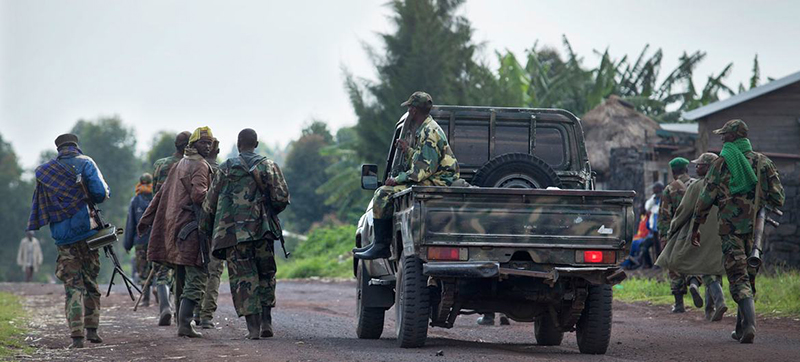 DR Congo
DR Congo New York: A top UN human rights official called on authorities in the Democratic Republic of the Congo (DRC) to redouble efforts to promote intercommunal trust amid a spate of deadly attacks targeting civilians.
The UN Assistant Secretary-General for Human Rights, Ilze Brands Kehris, concluding a 10-day visit to the country on Wednesday, reported a resurgence of attacks by armed groups and the devastating toll on communities alongside the need for action.
“The violence must stop,” she said, encouraging authorities to redouble their efforts to counter rising hatred and implement targeted initiatives to promote trust and cohesion within and between communities. “Without efforts to address the root causes of conflict, the human rights and humanitarian crises could worsen dramatically.”
Hate speech sparks violence
Alarmed by the deteriorating security situation in the east of the country, she said brutal attacks against civilians continue at the hands of such armed groups as the Mouvement du 23 mars (M23), the Allied Democratic Forces, and the Cooperative for the Development of the Congo.
“I strongly condemn theses appalling attacks and echo the Secretary-General’s call for ‘action for peace’ in Africa,” she said.
In North Kivu, the Government response of deploying troops to the area has created a “security vacuum” in other regions, allowing other armed groups to gain ground and spread terror in towns, villages, and camps for displaced people.
This fraught environment has fostered misinformation, prejudice, and hate speech against specific ethnic groups, posing serious risks of inciting further violence, she stated.
Documented abuses
Documented human rights violations and abuses include mass killings, mutilations, and conflict-related sexual violence, causing massive displacement and enduring trauma.
“In Goma and Bunia, I was struck by the determination of victims, representatives of civil society, and communities affected by conflict to chart a new path,” Ms. Brands Kehris said. “I listened to their individual accounts of violence and proposals for action, and I listened intently to their calls for how the United Nations and the international community can help the Congolese people and Government end conflicts and address present and past traumas.”
In the country with the world’s third-largest number of displaced people, she said that people facing years-long precarious conditions are a “stark reminder” that meeting basic humanitarian needs is a human rights issue.
Signs of ‘hope for the future’
Welcoming recent progress in the transitional justice process as “a clear sign of hope for the future”, she said these “important steps show the will of the Congolese people to meaningfully come to terms with traumas of the past and set a new foundation for peace and stability.”
Ahead of planned elections in December, she said officials and politicians from all sides have a responsibility to contribute to ensuring a free, fair and inclusive process, and called for the protection of civic space.
The Assistant Secretary-General’s visit included meeting with Prime Minister Jean-Michel Sama Lukonde Kyenge, Government officials, community leaders, civil society organizations, the East African Community Regional Force and the UN system, especially the UN mission, MONUSCO.
Support Our Journalism
We cannot do without you.. your contribution supports unbiased journalism
IBNS is not driven by any ism- not wokeism, not racism, not skewed secularism, not hyper right-wing or left liberal ideals, nor by any hardline religious beliefs or hyper nationalism. We want to serve you good old objective news, as they are. We do not judge or preach. We let people decide for themselves. We only try to present factual and well-sourced news.







